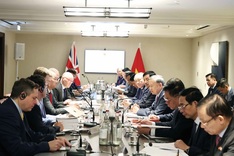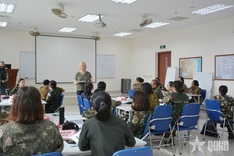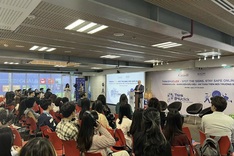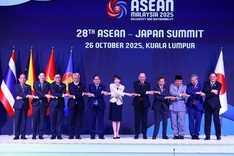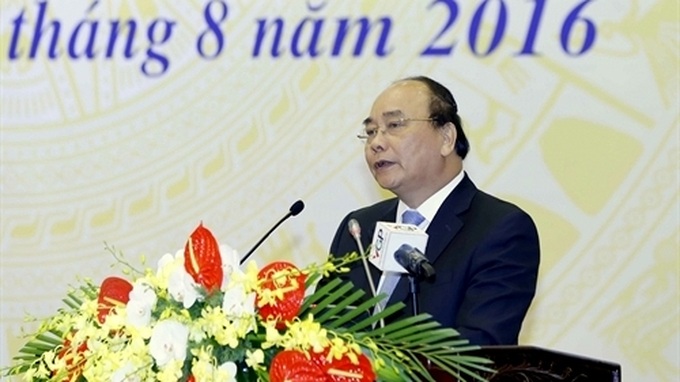
PM Nguyen Xuan Phuc calls on the Party, State and the whole society to join hands with the education sector to improve education quality for the country’s sustainable development, at a national online conference on August 5.
During a national online conference on August 5 to review the 2015-2016 academic year and launch tasks for 2016-2017, the PM affirmed that investing in education is the responsibility of the Party, State and the whole society.
Investing in education is investing in development, and a priority in all socio-economic development programmes, he stressed.He lauded the efforts of the education sector so far in enhancing the quality of both teaching and studying, helping to ease student’s study load and improve the education infrastructure system, especially in mountainous and remote areas.
He also pointed out remaining problems in the sector, including the ineffectiveness in foreign language teaching, which is leading to poor English proficiency among high school students amidst the country’s strong international integration.
The PM also pointed to the limited efficiency of vocational and tertiary training, which has not matched the needs of the labour market, leading to large numbers of unemployed university graduates and a lack of highly-qualified workers in many enterprises.
Post-graduate education still has various problems in quality resulting from students’ race to achieve a diploma at all costs, foregoing a sound education, which should be immediately tackled, he stressed, attributing the situation to slow reform of the financial mechanisms for education, poor performance of education management and ineffective supervision and inspection.
Noting that the infrastructure in many schools is in poor condition, he asked the government at all levels and all sectors to improve classrooms.
At the same time, it is also crucial to speed up the construction of schools in industrial parks, he stated.
Schools should also teach students about the country’s history and tradition of safeguarding national sovereignty, and to respect other people and uphold their social responsibility, he asked.
He also highlighted that universities’ self-reliance in finance should go along with better social responsibility.
Speaking at the conference, Deputy PM Vu Duc Dam noted that communications is a weakness of the education sector, which should be improved to mobilise the support and supervision of the society.
According to a report by the sector, despite economic difficulties, investment in education and training in 2016 still accounts for 20% of total State budget spending.
The report also highlighted the positive adjustments in the national final examination for high school students, which meet the requirements for enrolling in college and university.
Delegates at the event also proposed to further strengthen decentralisation for local authorities in education and training management, while suggesting improving infrastructure for higher education, especially auditoriums, library, and laboratory systems. They also urged the sector to increase investment to improve the quality of vocational training with a focus on improving the effectiveness of foreign language training, especially English.

